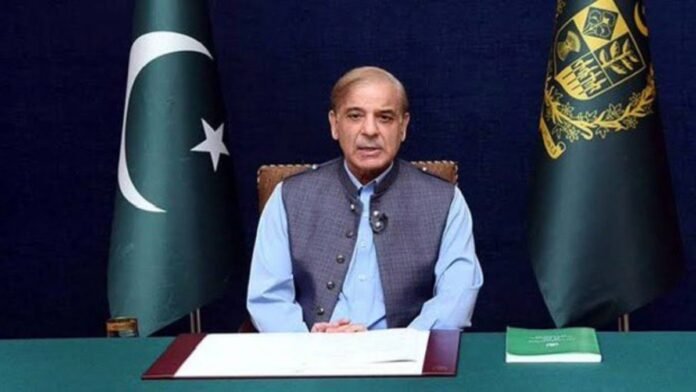
Key Points
- Pakistan PM Shehbaz Sharif has offered peace talks with India just days after intense cross-border military clashes and India’s major anti-terror operation, ‘Operation Sindoor’.
- The offer follows a fragile ceasefire reached on May 10 after India’s strikes on terror camps in Pakistan and Pakistan-occupied Kashmir in response to the deadly Pahalgam attack.
- The Pahalgam attack on April 22, carried out by The Resistance Front (TRF), killed 26 civilians, mostly Hindu tourists, and was linked to Lashkar-e-Taiba and Pakistan’s ISI.
- India’s Operation Sindoor targeted nine terror sites, killed over 100 militants, and marked a major shift in India’s counter-terror doctrine.
- India maintains that talks with Pakistan can only occur after concrete action against terrorism and insists Jammu & Kashmir is an integral part of India.
Islamabad: In a significant development following one of the most serious India-Pakistan military escalations in recent years, Pakistan’s Prime Minister Shehbaz Sharif has publicly stated his government is ready for peace talks with India. The statement comes just days after both nations agreed to a ceasefire following deadly cross-border strikes triggered by the Pahalgam terror attack.
Sharif made the remarks during a visit to the Kamra air base in Punjab province, addressing officers and soldiers who had participated in the recent confrontation. “We are ready to talk with India for peace,” Sharif said, but added that “conditions for peace” include addressing the Kashmir issue-a long-standing demand from Islamabad.
Background: Pahalgam Attack Sparks New Crisis
Tensions soared after the April 22 attack in Baisaran Valley, Pahalgam, Jammu & Kashmir, where five gunmen from The Resistance Front (TRF)-an offshoot of Lashkar-e-Taiba-killed 26 civilians, including 25 tourists and a local Muslim who tried to defend them. The attackers targeted non-Muslim tourists, making it the deadliest attack on civilians in India since 2008. Indian intelligence traced the attack’s planning and support to Pakistan’s ISI and LeT operatives.
India’s Swift Response: Operation Sindoor
In retaliation, India launched ‘Operation Sindoor’ on May 7, targeting nine terror bases in Pakistan and Pakistan-occupied Kashmir (PoK). Over 100 terrorists were killed, including high-value masterminds linked to previous attacks. India’s strikes were described as “focused, measured, and non-escalatory,” specifically targeting terrorist infrastructure while avoiding civilian and military facilities. The operation marked a decisive shift in India’s counter-terror doctrine, signaling that state-backed terror attacks would be met with direct military action.
Pakistan responded with drone and missile attacks on Indian territory, which were intercepted by Indian forces. Both sides engaged in intense cross-border exchanges until a ceasefire was agreed on May 10 after hotline talks between military leaders.
Sharif’s Peace Offer: Strategic Calculations Amid Pressure
Sharif’s peace overture comes as Pakistan faces mounting international pressure and significant losses from India’s strikes. While expressing willingness for dialogue, Sharif reiterated Pakistan’s traditional stance that Kashmir must be on the agenda. He was accompanied at Kamra air base by top military and government officials, signaling the seriousness of the message.
However, India has firmly rejected any talks unless Pakistan takes verifiable action against terrorism. Prime Minister Narendra Modi, in his first address after the conflict, stated, “Terror, trade and talks cannot be done together,” and reiterated that the only issue India is willing to discuss is the return of Pakistan-occupied Kashmir.
Ceasefire Remains Fragile
Despite the ceasefire, both sides accuse each other of violations. Pakistan’s Foreign Minister claimed the ceasefire would be extended until May 18, but Indian officials remain wary, citing previous breaches. The situation remains tense, with both militaries on high alert.
Regional and Global Reactions
India’s Operation Sindoor has drawn global attention and support as a robust response to cross-border terrorism. Analysts note that India’s new doctrine establishes a “red line,” treating state-backed terror attacks as acts of war and responding with calibrated military force.
Pakistan’s latest peace overture comes against the backdrop of unprecedented military action and diplomatic tensions. While Islamabad signals willingness for dialogue, New Delhi’s stance remains unchanged: peace talks can only resume after Pakistan takes concrete steps against terrorism.




















































